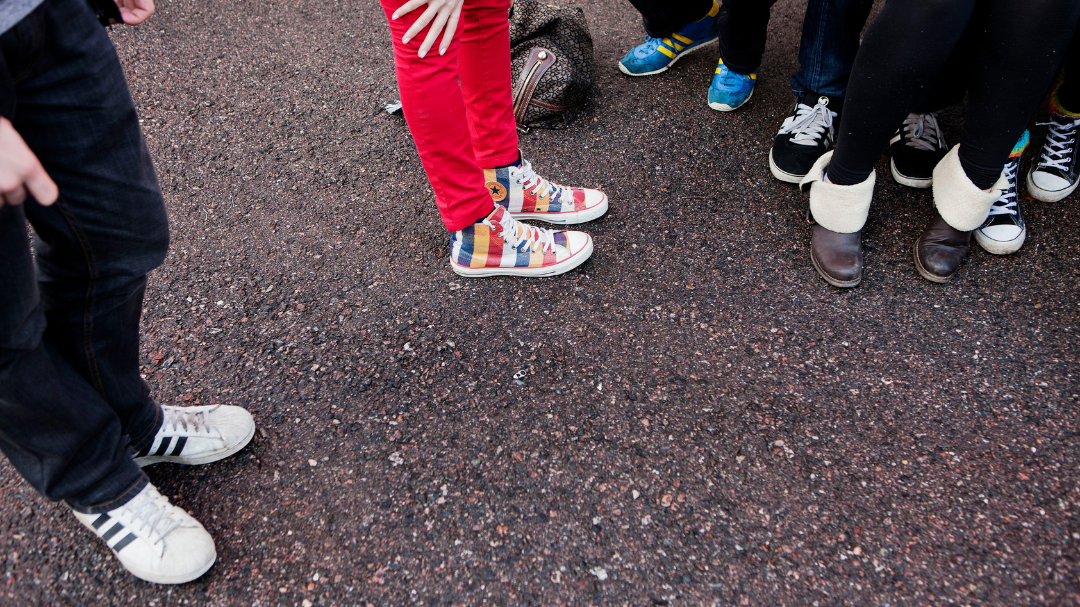Violence against children and young people combated effectively in 2020–2023

The Non-Violent Childhoods Action Plan contains 93 different measures to combat violence against children and young people in 2020–2025. The aim is also to help victims of violence. According to a recent mid-term evaluation, the implementation of the Action Plan is progressing well.
Of the measures listed in the Action Plan, 44 have progressed very well, while work on another 44 measures is still in the early stages or in the planning stage. Work on three measures has not yet started, and the mid-term evaluation was not able to assess progress in two measures. The Action Plan has been implemented as part of different organisations’ ordinary work through intersectoral cooperation. Numerous different programmes, projects and calls for funding have also supported the implementation to a significant degree.
“Combating violence against children requires that we all take part in addressing problems — from decision-makers, experts and professionals to adults who are close to children. Children and young people can overcome even difficult situations and lead a good life if adults fulfil their responsibility towards children and young people and support them,” says Senior Ministerial Adviser Marjo Malja from the Ministry of Social Affairs and Health.
Uniform information resource needed to support the work done
The mid-term evaluation provides a comprehensive statistical review of violence experienced by children. The number of young people committing violent crimes decreased particularly in the 2010s, but at the same time the number of violent crimes committed by the most criminally active young people has increased. However, children and young people’s experiences of safety outside the home have mainly improved.
According to the Child Victim Survey conducted in 2022, the decline in family violence experienced by children and young people has stopped and particularly psychological violence in families has become more common since 2013. School health promotion surveys show that young people, especially girls, experience sexual violence in its various forms more often than before.
Finland has a broad-based knowledge base on violence experienced by children and young people but it is also fragmented. Obtaining an overall picture requires knowledge of numerous different sources. A uniform information resource is needed to get an overall picture that supports decision-making, preventive work and assistance to victims.
Prevention of street violence as a new objective
The mid-term evaluation also contains three new objectives, one of them being the prevention of street violence among underage children. Assaults committed in public spaces most often involve hitting and kicking, but approximately one out of six cases reported to the police also involve the use of edged weapons. In recent years, it has also become more common to take photos or videos of assaults and share them on social media.
It is crucial to intervene in the violence and crimes committed by children and young people at the earliest possible stage. Outreach youth work as well as multidisciplinary and cross-municipal cooperation between the authorities together with the third sector play a key role in this effort. For example, multiprofessional Anchor activities developed by the police and the Ministry of the Interior have produced good results. It is also important to support children and families in maternity and child health clinics, early childhood education and care units, schools and student welfare, for example.
“There is a large number of actors from authorities to organisations that combat street violence in Finland. We have the skills and means but what we need to do is to collaborate more and even more closely than before,” says Senior Specialist Emilia Hämäläinen from the Ministry of the Interior.
When children or young people repeatedly commit offences or if they commit serious offences, long-term multiprofessional support is often needed to break the cycle of crime and substance abuse. With the help of the funding from the Ministry of Justice, intersectoral work has been conducted in four areas to support the efforts to break the cycle of crime and substance abuse.
“Supporting young people alone isn’t always enough. Support is also provided to families to strengthen parenting skills. It is also essential to assess the measures taken to prevent crime,” says Senior Specialist Saija Sambou from the Ministry of Justice.
A media event on the mid-term evaluation will be held on 14 April at 9.30. A live webcast of the event will be available via the following link.
- Non-Violent Childhoods – Action Plan – Mid-term evaluation (in Finnish)
- Non-Violent Childhoods Action Plan: thl.fi/vakivallatonlapsuus
- Barnahus work helps children and young people who have experienced violence: barnahus.fi
- Initiative submitted by the Ombudsman for Children to the Ministry of Justice to criminalise the possession and dissemination of material containing serious violence against children, 3 November 2022, available in Finnish and Swedish
- Follow-up report of Prime Minister Sanna Marin’s Government (2019–2023) on the implementation of the National Child Strategy, description sheet available in English
- Child Victim Survey 2022
Inquiries
Action Plan:
Marjo Malja, Senior Ministerial Adviser, Social Affairs, tel. +358 295 488 221, marjo.malja(at)gov.fi, Ministry of Social Affairs and Health
Ulla Korpilahti, Development Manager, tel. +358 29 524 8668, ulla.korpilahti(at)thl.fi, Finnish Institute for Health and Welfare
Street violence:
Emilia Hämäläinen, Senior Specialist, tel. +358 295 163 581, emilia.hamalainen(at)gov.fi, Ministry of the Interior
Saija Sambou, Senior Specialist, tel. +358 295 150 352, saija.sambou(at)gov.fi, Ministry of Justice
Henni Axelin, Director, tel. +358 295 330 205, henni.axelin(at)gov.fi, Ministry of Education and Culture

